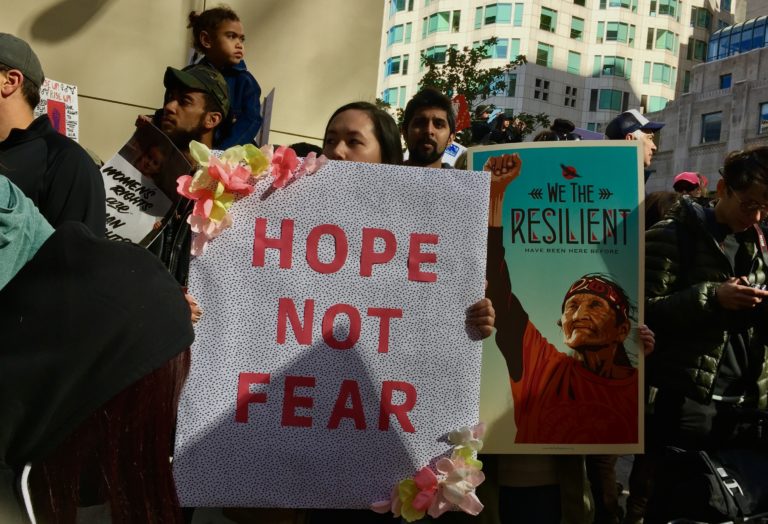Manifestos have resurfaced as fuel for firing political imaginations and calling people to action in a threatening time. But what can they really accomplish? A rethinking of the limitations of manifestos—their panic-driven contexts, their emphasis on collectivities rather than individuals, the vagueness and combativeness of their language—suggests that there may be other more fruitful ways of instilling care of and for language in everyday life and politics. With due deference to Orwell for his focus on the political dangers of not caring for language, we posit that his prescriptions can also inhibit our abilities to communicate in productive ways, across disparate communities that might stand to gain from breaking out of strictures on political language and expression. Inspired by Arendt’s call to “think what we are doing,” we propose as a starting point a language charter that will make language everyone’s business.
Keyword: language
Long Time No Ocean
Words on flagging banners are cut out, with letters left hanging; phrases like “Long Time No Ocean” become difficult to read. Language here functions in dual ways as both a communicative tool and an evocative form. In the absence, concealment, or constant rebuilding, a space opens up for a shift of meaning and it is this moment of shift that I am particularly interested in.
“A Very Soft or Long Attack and Release” or Heyyyyy: Queer Extensities
Amalle Dublon’s piece takes up extensity — the drawing out of certain sounds in verbal speech — as a phonic gesture that exceeds the temporal (and we might argue productive) regulations of merely representative, coded speech. In doing so, extensity creates what Dublon describes as “a kind of anticipatory penumbra that halos and holds the unstable coordination of mutual respondents.” Here, Dublon’s work seemingly provides an entry point into imagining queer community-formation as a project made possible by phonic excess.
